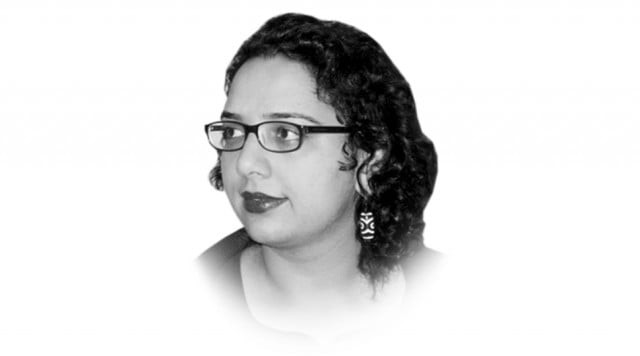Who’s afraid of fake degrees?
The fake degrees have become a major issue in this country — and quite understandably so.

The seminar invited known activists like Q Isa Daudpota and Naeem Sadiq. They said that society and its constituents needed to acquire greater freedom and that this could be done through civil society’s activism. Specifically, the freedoms that they were talking about were freedom from fraud, from rigged elections, from abysmal educational standards, and from lying and cheating in general. The two have in the past sent a petition to the Supreme Court to make the Election Commission verify the degrees of legislators and to take the election commissioners to task for not checking carefully the degree holding parliamentarians.
The politicians who spoke at the SDPI seminar — such as PPP Senator Nayyar Hussain Bokhari — are obviously equivocal on the issue. There have been a few statements by party leaders asking their members to resign, if they have fake degrees but these have been, by and large, exceptions. One shining example is that of the PML-N’s Abid Sher Ali — he heads the National Assembly’s standing committee on education — and has taken on this issue with full force. Yet, there is no cross-cutting clear moral or legal stance on fake degree holders. On the contrary, political parties are again issuing tickets to the same members who earlier were disqualified because they got elected after obtaining fake degrees.
The battle between activists and politicians is not merely reflective of divergent ideological leanings, it reflects deeply entrenched materialist realities of postcolonial Pakistan. Activists want rule-based Pakistan and want systems and institutions to work. They want a truly independent Election Commission and Higher Education Commission. Furthermore, a demand has been made to constitute an independent citizen’s commission to oversee the process of verification of degrees by getting organisations such as the HRCP on board. The election rules need to be amended in a way that allows committed citizens to become members of parliament. Some may think this to be all impractical but many of the activists think otherwise.
On the other side, the politicians want to perpetuate existing patron-client networks. For them, ‘rule of law’ is merely a hurdle to be crossed by hook or crook to gain material favours and to distribute resources in order to get elected again. They flaunt rules; they subvert laws to serve their material gains.
Therefore, the opposing opinions in the seminar are not a mere difference of opinion. They indicate a contestation between those who want to promote rule of law and those who want to subvert it. Of course not all politicians are corrupt and neither are all activists advocates of the rule of law. There are always exceptions. However, we are talking about broader trends. There are multitude of factions and cauldron of views along the spectrum. The choice of speakers in the seminar mirrored the deeper divisiveness in the society. The battle for the rule of law and the bursting desire to subvert it is deep. Having said this, we need people from society who are not activists per se to come forward and speak their mind on this issue as well.
Published in The Express Tribune, July 9th, 2010.

















COMMENTS
Comments are moderated and generally will be posted if they are on-topic and not abusive.
For more information, please see our Comments FAQ